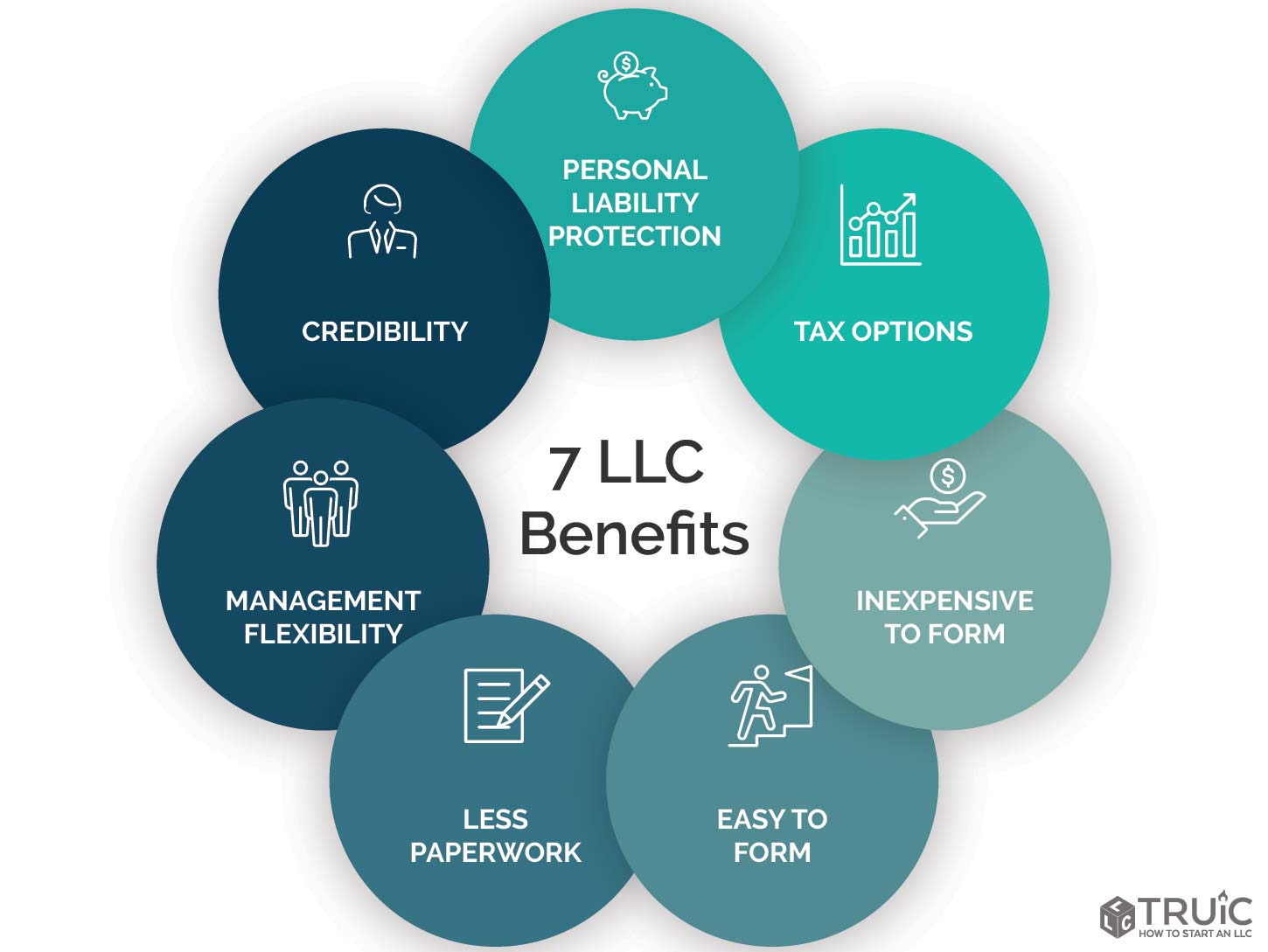Benefits of Forming an LLC
An LLC, or Limited Liability Company, is a popular business structure that offers numerous benefits to entrepreneurs and small business owners. In this article, we will explore the advantages of forming an LLC and why it can be a smart choice for your business.
Limited Liability Protection
One of the key benefits of forming an LLC is the limited liability protection it provides. By establishing an LLC, you separate your assets from your business liabilities. This means that if your LLC faces any legal issues or debts, your assets, such as your home or savings, are generally protected.
Pass-Through Taxation
Another advantage of an LLC is its tax flexibility. By default, an LLC is considered a “pass-through” entity for tax purposes. This means that the profits and losses of the business pass through to the owners’ tax returns. As a result, the LLC itself does not pay federal income taxes, avoiding the double taxation that corporations often face.
Flexibility in Management and Ownership
Forming an LLC provides flexibility in terms of management and ownership structure. Unlike corporations, LLCs are not bound by strict management and ownership requirements. You have the freedom to choose how your LLC will be managed and who will have ownership interests. This flexibility allows you to tailor the structure to your specific business needs.
Credibility and Professionalism
Operating as an LLC can enhance the credibility and professionalism of your business. Having “LLC” in your company name demonstrates that you have taken the necessary steps to establish a formal business entity. This can instill confidence in potential clients, partners, and investors, as it signifies a commitment to professionalism and legal compliance.
Easy Transfer of Ownership
Transferring ownership in an LLC is relatively simple compared to other business structures. If you decide to sell or transfer your ownership interest, you can do so without disrupting the operations of the company. This flexibility makes it easier to bring in new partners or investors or to pass on the business to future generations.
Enhanced Privacy
LLCs offer a level of privacy protection for business owners. Unlike some other business structures, LLCs do not require the public disclosure of the owners’ names and addresses. This can be particularly beneficial for individuals who value their privacy or wish to keep their involvement with the business confidential.

Forming an LLC can provide significant benefits for entrepreneurs and small business owners. From limited liability protection to tax flexibility and enhanced credibility, an LLC offers a range of advantages that can contribute to the success and growth of your business. Consider consulting with a legal or business professional to determine if forming an LLC is the right choice for your specific needs.
Frequently Asked Questions – Benefits of Forming an LLC
1. What is an LLC?
An LLC (Limited Liability Company) is a legal business structure that provides limited liability protection to its owners while allowing them to enjoy certain tax advantages.
2. What are the main benefits of forming an LLC?
Some key benefits of forming an LLC include limited personal liability, flexibility in management and taxation options, and the ability to separate personal and business assets.
3. How does an LLC protect my assets?
By forming an LLC, your assets are generally protected from any business liabilities or debts. This means that your savings, home, or other assets are not at risk if the LLC faces legal actions or bankruptcy.
4. Can a single person form an LLC?
Yes, a single individual can form an LLC, which is known as a single-member LLC. This allows you to enjoy the benefits of liability protection and flexibility in managing your business.
5. Are there any tax advantages to forming an LLC?
Yes, LLCs offer various tax advantages. They have the flexibility to choose how they want to be taxed, allowing owners to avoid double taxation and potentially reduce their overall tax burden.
6. Can an LLC have multiple owners?
Absolutely! LLCs can have multiple owners, known as members. This allows for shared decision-making, shared profits, and shared liability protection among the owners.
7. Do I need an attorney to form an LLC?
While it is not mandatory, it is highly recommended to consult with an attorney who specializes in business law to ensure all legal requirements are met and to understand the specific regulations in your state.
8. How much does it cost to form an LLC?
The cost of forming an LLC varies depending on the state and the services you require. Generally, you can expect to pay filing fees, which typically range from $50 to $500.
9. Can an LLC be converted into a different business structure?
Yes, an LLC can be converted into a different business structure, such as a corporation, if needed. However, the process and requirements for conversion may vary depending on your state’s laws.
10. Are there any ongoing requirements for maintaining an LLC?
Yes, LLCs have certain ongoing requirements, such as filing annual reports, paying taxes, and maintaining proper records. It is important to stay compliant with these obligations to preserve the benefits of your LLC.




